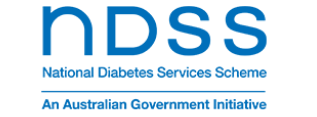Schools have a responsibility to provide a supportive environment for all students with a medical condition including students with type 1 diabetes. This may include supporting the student to meet their daily health care needs, such as monitoring blood glucose levels and administering insulin.
Schools are required to make reasonable adjustments to support a student’s type 1 diabetes management so they may participate fully in school life and reach their full learning potential. Making reasonable adjustments helps to ensure that students with type 1 diabetes are not disadvantaged or discriminated against in the school environment.
The Diabetes in Schools program aims to provide all school staff with the necessary training and education to identify and respond appropriately to the signs of low/high glucose levels or when a student with type 1 diabetes is unwell. School staff are encouraged to undertake level 1 online training provided through the Diabetes in Schools program to gain a basic understanding of type 1 diabetes and know what to do in an emergency.
Some staff will assume greater responsibilities to support children with type 1 diabetes on a day-to-day basis. These staff members are known as designated staff.
Designated staff are identified by the principal to provide support for a student while at school or at school-related activities such as camps, excursions and sports events. This support follows what is outlined in the student’s diabetes management plan. In some cases, designated staff will administer insulin or help a student to self-administer their insulin. This is a voluntary role and staff who agree to provide this support should receive extra training to help them to fulfill this role. It should be noted in some states, responsibility for supporting student health needs will already be agreed as part of the staff member’s condition of employment.
Ideally this role is held by staff members who have regular oversight of the student at school and a close working relationship with each other. They may be in a role that has regular contact with them such as a teacher, first aid officer or year level co-ordinator. It is also recommended that schools have more than one designated staff member. This ensures that there is always someone with appropriate training available to support the student and cover absences or to assist where other designated staff are not available. It’s the principal’s job to determine how many designated staff the school requires. This will be influenced by things like the size of the school and the number of students with type 1 diabetes.
Designated staff should undertake further Level 2 and if required, Level 3 training provided through the Diabetes in Schools program. This training is designed to provide designated staff with the knowledge and understanding they need to safely support students with type 1 diabetes at school. Training includes learning modules about blood glucose monitoring and the administration of insulin as well as other important topics.
Designated staff play a pivotal role in the school diabetes team to support the student and help them manage their type 1 diabetes. They are a key point of contact and work closely with the student, their parents or carers and the health professionals in the student’s clinical treating team.
Schools and principals should provide appropriate support to designated staff to ensure that taking on the role does not impact their ability to provide a suitable learning environment for all their students.
Designated staff are required to have a clear understanding of their roles and responsibilities. This includes understanding the legal duty of care that the school and school staff have to ensure students are not exposed to avoidable risks of harm because of their type 1 diabetes. Designated staff should also understand the school’s obligation to make reasonable adjustments to support a student while at school. The school has a responsibility to consult with the student and their parents or carers to determine the reasonable adjustments that the school will make to support the student in managing their type 1 diabetes. This process should be undertaken by the principal or a staff member to whom responsibility has been delegated by the principal. This may be the designated staff member. However, if the designated staff member is not part of this process it is important that they are aware of the adjustments that have been agreed upon by the school. >> Read More
To ensure that designated staff are able to carry out these responsibilities safely and competently more advanced training has been developed as part of the Diabetes in Schools program. This training may include face-to-face education. >> Read More about the Diabetes in Schools program
About the diabetes management plan (DMP)
A student’s diabetes management plan is an essential document that will guide how schools can support students to learn and participate fully in their school experience. It is also a critically important aspect of ensuring the school complies with key legal obligations (see Diabetes Management Plan).
The diabetes management plan will usually be developed by the student’s clinical treating team in collaboration with the student and their family. A student’s diabetes management plan will outline their monitoring, insulin and daily type 1 diabetes management needs while at school. The plan should provide schools with clear information about when a student requires supervision or support with key tasks, such as checking their blood glucose or taking their insulin at school.
Diabetes management plans will differ in format and detail depending on the state or territory. In some states, schools are also required to develop a separate school health care plan. These plans do not replace the student’s diabetes management plan but provide more detail about what actions and adjustments a school will put in place to support a student with type 1 diabetes.
Training available through the Diabetes in Schools program assists school staff with understanding key aspects of the student’s diabetes management plan and how to implement it effectively in schools.
Implementing the diabetes management plan
A school should work closely with a student’s parents or carers and the clinical treating team to determine how the school will support the student to effectively manage their type 1 diabetes. Upon school enrolment or at diagnosis parents or carers should provide the school with the student’s diabetes management plan.
The diabetes management plan should be used to inform the types of supports the school may put in place to assist the student’s participation in school activities. These supports should be discussed and agreed upon by the principal (or delegate), the student’s parents or carers and student (where appropriate). Ideally, the designated staff should be involved in this consultation. Once these supports and reasonable adjustments are agreed the school will implement the measures to support the student at school.
The diabetes management plan includes a section for the student’s parents or carers to provide consent which authorises school staff to provide the agreed support to the student and to share key information with others (such as the clinical treating team) as necessary and reasonable. Once the consent is signed by the student’s parents or carers and the school, this gives the school the necessary authorisation to provide the agreed support and reasonable adjustments, including the physical actions of assisting with blood glucose monitoring and administering insulin or supervising its administration. When aspects of the student’s diabetes management plan are changed by the clinical treating team, or when support in the school environment is changed the consent given by parents and carers should be updated to reflect these changes.
Designated staff play a critical role in ensuring that the student’s diabetes management plan is followed in the school environment. It is important that all staff within the school are aware of who the designated staff are, so they know who to contact should a student require support.
As part of the ongoing support provided to students with type 1 diabetes designated staff may need to contact the student’s clinical treating team for advice and guidance. Staff may also require training on supports that have been agreed upon, including training on the use of medical equipment and administering medicine.
Additionally, the principal and designated staff members will need to ensure that medicines are stored safely in accordance with the school’s medicines policy and in a way that takes account of the student’s needs as outlined in the diabetes management plan.
In some states and territories some schools may be required to prepare a student health plan or action plan that details the processes and steps that the school will take in the day-to-day management of the student’s type 1 diabetes (and other health conditions, where relevant). Where such documents exist, they will need to reflect the student’s diabetes management plan and ensure that the full range of supports and adjustments agreed upon are appropriately documented and communicated to staff within the school as required.
Making reasonable adjustments
Designated staff play an important role in the school’s agreement to make reasonable adjustments to support the student’s attendance and participation at school. Reasonable adjustments are supportive actions that schools adopt to ensure that they meet the requirements under the Disability Standards for Education and the Disability Discrimination Act 1992 (Cth).
Students will have different needs to manage their type 1 diabetes at school. The Disability Standards for Education outlines a number of key factors that a school should consider when determining what reasonable adjustments are required. This requires balancing the interests of all parties affected and considering all ‘relevant circumstances’, including:
- the impact of the student’s disability
- the views of the student, parent/carer, which requires ongoing consultation between the school, the parents/carers, and the student
- the impact of the adjustment on the student’s educational opportunities – which might include, an adjustment enabling a student to partake in school activities or educational opportunities
- the effect of the proposed adjustment on anyone else such as the educational provider, school staff or other students
- the cost and affordability of making the adjustment; and
- any other relevant circumstances.
As the requirement to engage in consultation is embedded within the Disability Standards for Education, it is important that schools, parents/carers and students (where appropriate) discuss and agree on the proposed adjustments. Parents or carers and the school may have different ideas about what is a reasonable adjustment so the process of consultation is important to enable all parties to come to an agreement about which adjustments are reasonable for the school to make. Adjustments need to be reasonable for the school, based on all of the circumstances, as well as of benefit to the student. Supporting blood glucose monitoring and administering insulin or supervising its administration at school can be seen as a supportive action or a reasonable adjustment that helps a student’s enrolment and participation at school.
Examples of reasonable adjustments might include:
- additional communication between school staff and the student’s parents or carers
- supporting the use of continuous glucose monitors in the school setting, including allowing students to use mobile devices to sync with their continuous glucose monitors
- supporting the use of insulin pump therapy for the administration of insulin
- supervising or administering insulin by way of injection or via pump
- allowing students to access food during class or during other activities
- allowing students access to their medical equipment during class time
- providing additional breaks to allow students to check their blood glucose levels and for the administration of insulin
- allowing the student to have extra toilet breaks
- providing an appropriate area that the student can use to test their blood glucose levels and/or administer their insulin (if they wish to use it); and
- giving extra time or special consideration on exams and assignments.
(This is not an exhaustive list)
Understanding the law
Schools and school staff are likely to be familiar with the wide range of legal obligations and duties relevant to the school environment. When supporting students with type 1 diabetes an understanding of relevant legal and policy frameworks may help schools and school staff to discharge these legal obligations and duties. The following legal concepts are particularly relevant in relation to students with type 1 diabetes in the school setting.
Poisons and medicines legislation
Australian poisons legislation outlines a range of requirements in relation to the storage and administration of medicines. In the context of insulin administration for students with type 1 diabetes, these laws require:
- that consent is obtained from the student’s parents or carers to permit school staff to assist with the administration of insulin and related procedures as anticipated by the student’s diabetes management plan
- that appropriate training in insulin administration (and where necessary, updates to such training) is provided for designated staff members
- that a student’s medicine is prescribed by a health professional and that the directions of the health professional are followed by the person administering the medicine, as outlined in the student’s current diabetes management plan and completed/signed off by the student’s treating health professionals
- that insulin is appropriately stored whilst on school premises in accordance with the principal’s directions and relevant school policy about how insulin must be stored (and ensuring it is readily available for the student(s) if needed urgently or in an emergency); and
- where relevant, sharps/needles are safely disposed of.
Consent laws
The consent of a parent or guardian to authorise school staff to provide support to a student with type 1 diabetes can help ensure that the physical acts of supporting the student and/or administering insulin are lawful. Compliance with consent laws can be achieved by:
- obtaining consent from the student’s parents or carers to allow school staff to provide support and assistance to manage a child’s type 1 diabetes and administer insulin
- keeping a record of the parent’s or carer’s consent form in the diabetes management plan and the school’s health management or action plan (where such documents exist), and retaining a copy of the consent for the school’s records
- ensuring that the consent is specific to what was agreed between the parents or carers and the principal, and details about how the student’s type 1 diabetes will be managed in the school environment and by whom – and ensure that consent is updated should there be a change in designated staff; and
- ensuring that the consent of the parents or carers authorises disclosure of private and confidential information concerning the student’s type 1 diabetes and health needs. This may include other parties, including school staff, external agencies (as the department of education or the student’s clinical treating team), and other relevant third parties (such as those providing type 1 diabetes education and training to school staff), so far as is reasonable and required for the effective implementation of the diabetes management plan in the school.
Anti-discrimination law
Schools are likely to be familiar with the Disability Standards for Education and the Disability Discrimination Act 1992 (Cth), which require schools to make reasonable adjustments.
As explained above, there are a range of factors that must be considered when determining whether an adjustment is reasonable. School staff who follow the adjustments agreed upon between the school principal (or delegate) and parents or carers, can help schools to ensure that they comply with anti-discrimination law.
The School’s legal duty of care to students and staff includes the duty to create a safe environment and to take reasonable precautions to avoid exposing students and staff to foreseeable risks of harm. The school’s duty encompasses a ‘non-delegable duty’ of care, which means the school has an overarching duty to students, even if specific responsibilities are delegated to particular staff members. In addition and alongside the non-delegable duty of care owed by the school, individual school staff owe a duty of care to students and others in the school environment, which similarly requires that they take reasonable steps to avoid foreseeable harm. These duties work alongside each other and often overlap.
There are foreseeable risks of harm for students with type 1 diabetes. This requires that the school and school staff take reasonable precautions to protect students and staff against such risks of harm. This can be achieved by the implementation of processes and safeguards by the school to support students with type 1 diabetes, to ensure their safety, as well as for the safety of other students and staff. The designated staff member plays an important role in supporting a student with type 1 diabetes and in helping to maintain their safety in the school environment.
Good management of a student’s type 1 diabetes in the school environment in the short to medium term can help to ensure that a student is able to learn and participate at school. Without such management, students may experience serious and immediate health complications such as unconsciousness as a result of very low blood glucose levels. Maintaining a safe system to support students with type 1 diabetes in the school environment can help in the discharge of the duty of care by schools and school staff.
There are a number of key measures that may help the school to ensure that the relevant legal and policy obligations are met. The implementation of these measures is the responsibility of the principal:
- Implementing a student’s diabetes management plan
Ensuring that the student’s individual diabetes management plan is effectively implemented in the school setting and that appropriate measures are in place to enable staff to support the student’s needs as set out in the student’s plan. - Ensuring that there is access to training and education
Ensuring that all school staff who play a role in supporting the student are given the opportunity to access appropriate training so that staff are able to discharge their duty of care to students. - Communication
Communicating with members of the school diabetes team is fundamental so that each party can understand each other’s roles and responsibilities as well as ensuring that any changes or adjustments to the child’s needs are communicated effectively to school staff including the designated staff members.
Training for all schools
The Diabetes in Schools program provides training to public schools, independent and Catholic schools.
All school staff should have a basic awareness of type 1 diabetes and know how to recognise the signs of an emergency such as a hypoglycemic episode. Additional training for designated staff is available face-to-face or online. >> Learn more about training for schools







